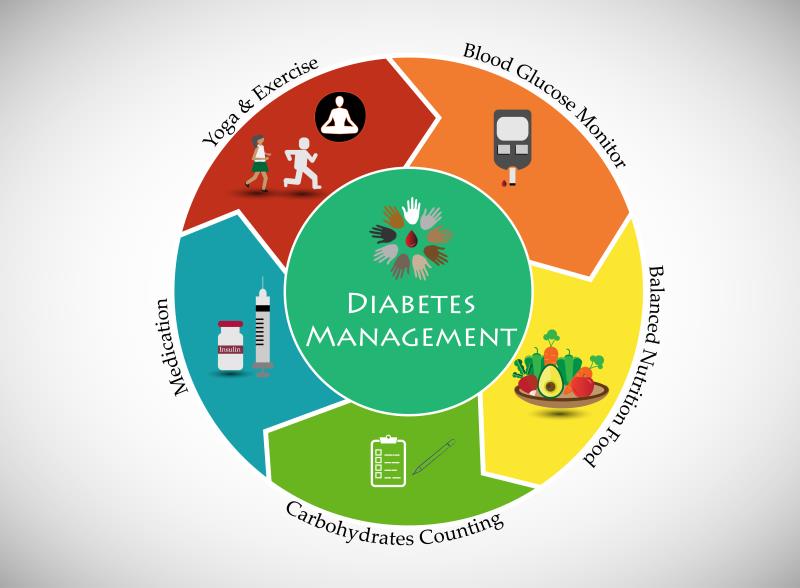According to data from the Diabetes Lifestyle Intervention using Technology Empowerment (D’LITE) study, self-management of diabetes through the use of smartphone health apps appears to produce positive changes in disease outcomes such as weight and blood sugar.
In a cohort of Singaporean adults with diabetes and prediabetes, frequent use of the Nutritionist Buddy (nBuddy) diabetes app enabled significant reductions in weight and HbA1c over 6 months. The weight of participants who engaged decreased by up to 10.6 percent from baseline ≥5 vs. <5 app features (mean difference, -6 percent, 95 percent confidence interval [CI], -8.9 to -3.2; p<0.001). Meanwhile, HbA1c fell by 1.0 to 1.4 percent in participants with diabetes with more app engagement. [JMIR Diabetes 2022;7:e35039]
These results are consistent with previous reports that higher app engagement leads to better health outcomes and is the main determinant of successful weight loss, according to researchers at National University Singapore. [J Med Internet Res 2017;19:e160; Transl Behav Med 2017;7:277-285]
“We anticipate that the more time participants spend using the app, they become more engaged in learning, self-monitoring, and health improvement behaviors [change the patients’ overall approach to their health, enabling] better self-management skills and engagement,” they emphasized. [Int J Behav Nutr Phys Act 2016;13:127]
Personal Health Assistant
Designed based on a theoretical behavioral model, the nBuddy Diabetes app has several features to support a user’s self-management efforts, including meal logging, calorie and carb limit alerts, and step tracking. Using data from these features, the app sends real-time prompts reminding the user to choose a healthier meal, with automatic suggestions for culturally appropriate food alternatives. [JAMA Netw Open 2021;4:e2112417]
In addition, the app integrates tracking features such as weight charts and self-monitoring of blood glucose (SMBG), fasting and random blood glucose. It also allows for two-way communication between the nutritionist and participants to enable individual lifestyle adjustments and coaching via a chat function.
App engagement over 6 months was defined in the study as active use of the individual app features, such as e.g. The cut-off used was 75 percent, which is considered a common and realistic uptake, as echoed by similar mobile health studies (mHealth) in the literature. [JMIR Mhealth Uhealth 2020;8:e14802]
The median overall app engagement rate was maintained at over 90 percent over 6 months among the 171 diabetic and pre-diabetic participants (mean age 52 years, body mass index 29.3 kg/m²).2HbA1c value 6.5 percent) included in the analysis.
Meal logging was one of the frequently used features of the app. Notably, participants with diabetes who kept a complete meal log for > 5.1 days per week or stayed within their carbohydrate limit for > 5.9 days per week each had greater HbA1c reductions of 1.2 percent compared to 0 .2 percent among those who used the features <1.1 and ≤2.5 days per week, respectively.
Meanwhile, adhering to the carbohydrate limit of >5.9 days per week and choosing healthier diet options for >4.3 days per week had the greatest impact on weight, resulting in a 9.1 percent reduction (p=0.001) and 8 .8 percent (p=0.005). , respectively.
“Overall, meal logging should become a part of routine monitoring, similar to SMBG, not only as a guide to managing patients with diabetes at clinic visits, but also as an important behavioral intervention,” the researchers said.
“It is also important to note that participants communicated with the dietitian via the app every other day…Two-way communication with a dietician could enable participants to make immediate changes based on SMBG readings, des meal log and physical activity. In fact, interacting with the dietitian via the app was associated with significant reductions in body weight and HbA1c levels,” they added.
#DIY #Diabetes #Management #Digital #App #Facilitates #Weight #Control #Blood #Sugar #Control #Latest #news #doctors #nurses #pharmacists #endocrinology


Leave a Comment